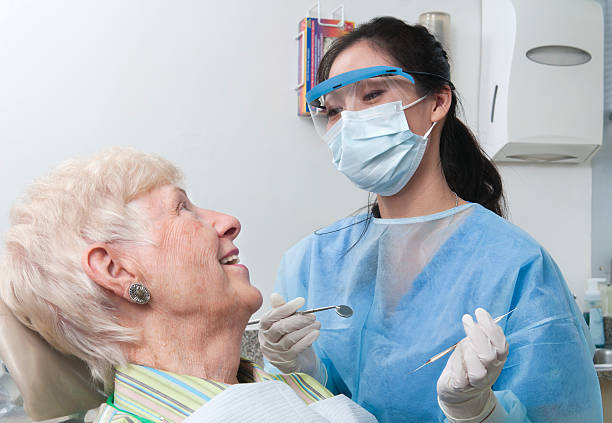
Introduction
As we age, maintaining good oral health becomes increasingly important. However, seniors often face unique challenges when it comes to dental care, including age-related oral health issues, medication side effects, and limited access to dental services. Despite these challenges, prioritizing senior dental care is crucial for overall health and well-being. In this article, we’ll explore three essential tips for seniors to maintain optimal oral health as they age.
Regular Dental Check-ups and Cleanings:
- Seniors should schedule regular dental check-ups and cleanings with their dentist, ideally every six months. These appointments allow for early detection and treatment of dental problems, such as gum disease, cavities, and oral cancer.
- During dental visits, seniors should discuss any concerns or changes in their oral health with their dentist. This includes issues like dry mouth, tooth sensitivity, or changes in denture fit. Open communication with the dental team can help address these issues promptly.
- For seniors with mobility issues or transportation challenges, home dental care services or mobile dental clinics may be available. These services bring dental care directly to seniors who are unable to visit a traditional dental office.
Maintaining Good Oral Hygiene at Home:
- Seniors should practice good oral hygiene habits at home, including brushing teeth twice a day with fluoride toothpaste and using dental floss or interdental brushes to clean between teeth.
- For seniors with arthritis or other mobility issues, adaptive oral hygiene aids, such as electric toothbrushes or floss holders, can make daily oral care easier and more effective.
- Proper denture care is also essential for seniors who wear removable dentures. Dentures should be cleaned daily with a denture brush and soaking solution to remove food particles and prevent bacterial growth. Additionally, seniors should have their dentures checked regularly by a dentist for proper fit and function.
Managing Oral Health Challenges Associated with Aging:
- Seniors may experience specific oral health issues related to aging, such as dry mouth (xerostomia), gum recession, and tooth root decay. These conditions can increase the risk of dental problems like cavities and gum disease.
- To combat dry mouth, seniors can stay hydrated by drinking plenty of water throughout the day and using saliva substitutes or moisturizing mouth rinses as needed. Chewing sugar-free gum or sucking on sugar-free candies can also stimulate saliva production.
- Seniors should be mindful of medication side effects that can affect oral health, such as dry mouth, gum inflammation, or increased risk of bleeding. They should inform their dentist about all medications they are taking to ensure comprehensive dental care.
Conclusion
Senior dental care is essential for maintaining overall health and quality of life as we age. By prioritizing regular dental check-ups, practicing good oral hygiene at home, and addressing age-related oral health challenges, seniors can enjoy a healthy smile for years to come. Remember, it’s never too late to invest in your oral health, and with the right care and support, seniors can achieve optimal dental well-being.
In summary, seniors should prioritize regular dental visits, maintain good oral hygiene habits, and address age-related oral health challenges to ensure a healthy smile and improved overall well-being. By following these essential tips, seniors can enjoy a lifetime of excellent oral health and continue to smile with confidence.
Recent Comments